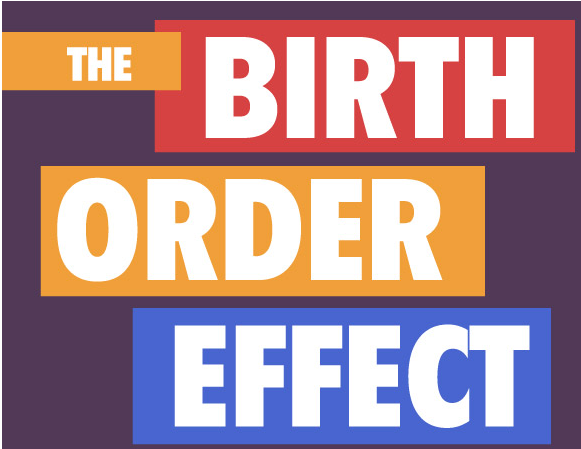Birth Order Based Personalities

February 22, 2022
Some are the only child of their family, while others may have siblings. A child’s personality might be influenced by what they see, hear, and learn about throughout their childhood and eventually adulthood. It can also be based on their birth order as well.
Only Children
Being an only child is very different from having a sibling. Unlike firstborn children, all the attention, time, and love are yours for your whole life, rather than a short period of time. Having all these things at your disposal can come as an advantage and a disadvantage too! While being able to receive help from doting parents, all their expectations could be a burden and can weigh heavily on your shoulders. Only children tend to be mature for their age, a perfectionist, diligent, have a natural sense of leadership, and want everything thoroughly and rightly done.
First Borns/Oldest SIblings
The first child is like an experiment for their parents. As they say, there’s a first time for everything! After getting used to being the center of attention, it may not be easy to paint other kids into the picture. Firstborns generally score higher on IQ tests and get more educational opportunities. Parents might have enforced rules more strictly when you were younger and made it easy for your siblings. Like an only child, this can result in a firstborn being a perfectionist and always wanting to make their parents happy and proud. Because parents have more time with only one child, first-born children also can get more aid from their parents in their endeavors.
There are of course some challenges in being the oldest. According to parents.com, “Firstborns tend to be type-A personalities who never cut themselves any slack.”Even if they accomplish something big, due to an intense fear of failure, they may not see the remarkability of the achievement. Firstborns generally aren’t known for taking risks or going out of their comfort zone. They can be unwelcoming and hesitant to accept change.”
Middle Children/Second Borns
Once a couple has their second child, they have more experience with parenting. They might be less strict with the child. As there are now two children and not one, parental figures have to equally divide their love, which isn’t always easy. Due to sometimes lack of attention, in comparison to their older and younger siblings, middle children are seen as people pleasers. The middle child might have trouble finding who they are within themselves as they are not defined as the older or younger sibling. This causes them to be closer with friends and peers than sometimes their own family. According to their birth order, middle children might be rebellious, thrive on friendships, have large social circles, and be a peacemaker.
If you are a middle child, you would have been the baby of the family for a while before the next kid was brought into the world. Even if they are, second children may feel as if they are not valued as much as their other sibling(s). A survey conducted by TheBabyWebsite.com, a British resource for parenting discovered that parents with three children, even admitted that they noticed that they unevenly split their attention between their oldest, youngest, and middle children. Being a middle child may seem good but there are certain disadvantages that come with it!
Youngest Children/Younger Siblings
The youngest of families with multiple kids are usually free-spirited, mostly because the rules aren’t as hard on them, unlike how they might have been for a sibling older than them. They tend to be easygoing, manipulative, outgoing, attention-seeking, self-centered, and fun-loving.
Even though they may not be the brains or the brawn of the family, later borns will always have a few tricks to move the spotlight towards themselves. Due to their social butterfly-like behavior and outgoing personality they can be seen as natural charmers. It isn’t a shocker that lots of famous actors and actresses, comedians, and more are the youngest of their families. They also can be more agreeable in comparison to others. They also are daring and can be the first to take a physical risk in their families, such as playing football or soccer.
Younger siblings can have a hard time thinking of original ideas, as other people in the family have done much more before them. They may not bring as much excitement out of their parents as the ones before them did. They also can be a little wilder and less disciplined, sometimes, because of not having any chores or responsibilities.
These are not always going to be exact in every person, but these can play a role in who they are!










































